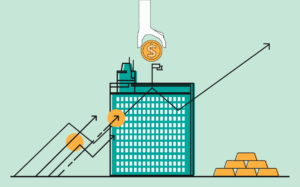Passion Investments: Why High-Net-Worth Individuals are Turning to Luxury Collecting
[vc_row][vc_column][vc_column_text]by Alan L. Olsen, CPA, MBA (Tax)
Mananging Partner
Greenstein, Rogoff, Olsen & Co.
Posted: 3/1/11
In times of economic uncertainty, bad news is good news for collectors and sellers. This uncertainty drives capital out of the stock market but at the same time, causes investments like art, wine and fine jewelry (among others) to enter the market. When typical investments are down, people sell their collectibles and when the stock market seems like a relative loser, art, wine, and fine jewelry can be great investments.
Record low bond yields and market volatility are causing investors to look elsewhere for investment opportunities. Tangible investments which yield a decent long-term return and provide enjoyment are becoming increasingly popular. These “passion investments” are typically rare, luxury items that the investor is passionate about owning and enjoying – from fine art to yachts.
The Capgemini and Merrill Lynch World Wealth Report 2010 found that high-net-worth individuals are returning to passion investment as “investor-collectors”, seeking out those items that are perceived to have tangible long-term value. According to the report, the two categories found to be the most attractive were art and “other collectibles” such as coins, antiques or wines.
Aside from the enjoyment of securing the ultra rare collectible piece, these long-term investments are proving to be a good way to diversify a portfolio:
During the first half of 2010 the Mei Moses All Art Index which tracks auction prices gained 13.5% compared with a 6.5% fall in the S&P500 index during the same period.
The Liv-ex Fine Wine Investables index, which tracks the price of fine wines from 24 chateaux in Bordeaux, was up 27.2% from the beginning of 2010 to the end of August.
In the first quarter of 2010, yacht brokerages closed nearly 30% more sales than a year earlier, with a 70% increase in valuation, according to a survey by UK broker Yachtworld.com.
As long as the financial environment remains uncertain, demand for tangible assets is likely to increase.
Tax Implications
Collectibles are taxed in two different tax brackets:
Short-Term Collectible Capital Gains Tax Rates: Collectibles held less than one year are taxed at personal income tax rates, just like short-term capital gains taxes on stocks or bonds.
Long-Term Collectible Capital Gains Tax Rates: Collectibles held one year or longer are taxed at 28%.
The IRS defines collectibles as:
• Stamps • Fine Art
• Coins • Precious Metals (Including Coins)
• Alcoholic Beverages (Like Fine Wine) • Precious Gems
• Rare Rugs • Antiques
For additional information please see our article Calculating Capital Gains Tax on the Sale of a Collectible at www.GROCO.com or contact Alan L. Olsen, CPA, MBA (Tax), Managing Partner of Bay Area CPA firm Greenstein, Rogoff, Olsen & Co., LLP at 510-797-8661.[/vc_column_text][/vc_column][/vc_row]
Starting a New Business? – Be Prepared for Taxes
Starting and owning a new business can be very exhilarating but it can also be very stressful. There are so many important things to keep track of and dozens of tasks that need your attention. One thing that can get lost in the shuffle is your taxes. First, the taxes you owe and how…
Why Is Integrity So Important for Building Trust?
One of the greatest attributes a business can have is trust. Trust is so important between a company and its customers, as well as between the leaders of a company and the rest of the staff right on down the line. Trust can take a long time to build, but it can be lost…
The State of the Private Equity Industry—Is It All Down Hill From Here?
In the past private equity has been a solid way of investing taking in trillions of capital, but with the ever changing world we live in, what is the state of the industry? Private equity investments typically consist of money being placed in a company by venture capital firms, private equity firms or angel…
How the Wealthy Save on Taxes
Whether you make minimum wage or you’re in the richest 1 percent of earners, every taxpayer likes to keep as much of his or her hard-earned income as possible. There are hundreds of ways to save on taxes and many of these strategies are universal to all taxpayers no matter which tax bracket they…




